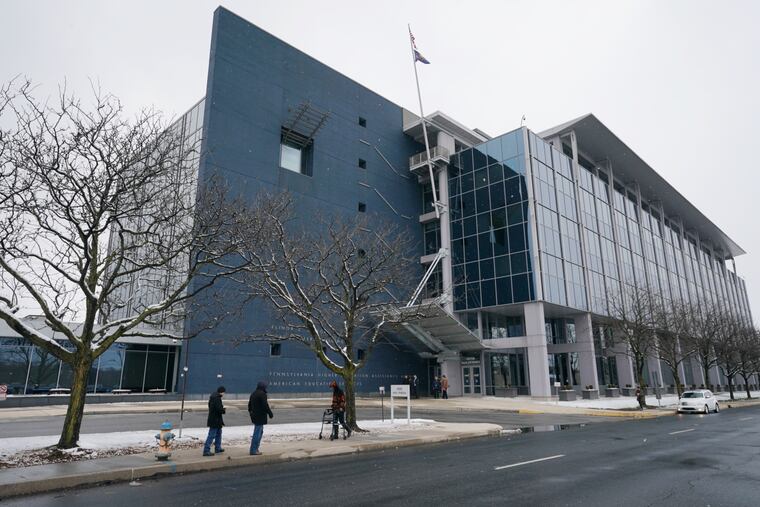Federal consumer agency hires exec in complaint-ridden Pa. firm as watchdog
A high-ranking executive at the obscure Pennsylvania Higher Education Assistance Agency has been hired as the nation’s top student loan watchdog, another example of the revolving door between a Washington loan complex and industry that services $1.6 trillion in student loans.

So far this year, more than 1,000 student borrowers have complained to the Consumer Financial Protection Bureau (CFPB) in Washington about the practices of an obscure but powerful Pennsylvania state agency that services their loans.
Now the consumer bureau has hired a high-ranking executive from the Pennsylvania Higher Education Assistance Agency as the nation’s top student loan watchdog — which means that Robert G. Cameron, previously a top compliance official for the agency, will be tasked with evaluating his former employer. Millions of student borrowers know the Pennsylvania organization as FedLoan, American Education Services, or PHEAA.
Critics called Cameron’s appointment another example of the revolving door of executives and staffers between the federal student loan bureaucracy and private companies, and of the overt campaign by the Trump administration to undermine Obama-era protections for student borrowers.
“It is outrageous that an executive from the student loan company that has cheated students and taxpayers — and is at the center of every major industry scandal over the past decade — is now in charge of protecting borrowers’ rights,” Seth Frotman, the former ombudsman and now executive director of the nonprofit Student Borrower Protection Center.
But Robert Kelchen, assistant professor of higher education at Seton Hall University, held a more moderate view Tuesday. “I’d like to wait and see what he does before I judge him,” he said.
Cameron was paid $160,381 at the Harrisburg-based PHEAA, according to state records. In addition to PHEAA, Cameron had a 29-year career in the U.S. Army, serving as a staff judge advocate for the Pennsylvania Army National Guard, according to a CFPB release announcing his hiring last week.
The Consumer Financial Protection Bureau did not respond to questions.
In an instance earlier this year of the revolving door between the government and the private student-loan servicing industry, PHEAA snagged Kathleen Smith as director of federal relations in April, paying her $235,000 a year.
Smith — who will work closely with the Education Department at PHEAA — once worked as a top official at the federal department. She has also been a staffer on the Senate committee responsible for higher education policy, and president of the powerful student-loan lobbying firm Education Finance Council.
Based out of a gray-stone, six-story mid-rise, a short walk from Harrisburg’s Capitol Building, PHEAA was created in 1963 to originate and service loans for the state’s students. But that changed drastically with the 2008 financial crisis.
Like most commercial borrowers, PHEAA found itself frozen out of debt markets. The U.S. government helped bail out banks by taking over responsibility for lending to college students through the U.S. Department of Education.
But the federal government lacked an important function as the key student lender: how to service loans for millions of American borrowers with loan statements, calculating interest charges, principal reductions, tracking documentation, and other tasks.
PHEAA offered to do all that on a massive and more complex scale for the Department of Education. PHEAA bid and won the first of its federal contracts in 2009, branding its service as FedLoan.
Last year, five federal lawsuits targeted PHEAA and FedLoan, alleging a host of servicing problems that were consolidated in federal court before U.S. District Judge C. Darnell Jones II in Philadelphia.
The suits claim that PHEAA posts misleading information on its website, fails to respond to complaints and process forgiveness applications, puts borrowers into repayment plans without consent, or improperly places them in deferment, letting students temporarily stop or reduce federal loan payments.
The attorneys general in Massachusetts and Kentucky have also filed suits on behalf of borrowers against PHEAA and FedLoan.
PHEAA officials have warned that the agency’s profits have declined substantially this year because of the costs of servicing federal loans. Now the agency is working to become a major loan originator, lending money directly to students as it did in the past and raising new risks for the agency’s performance.